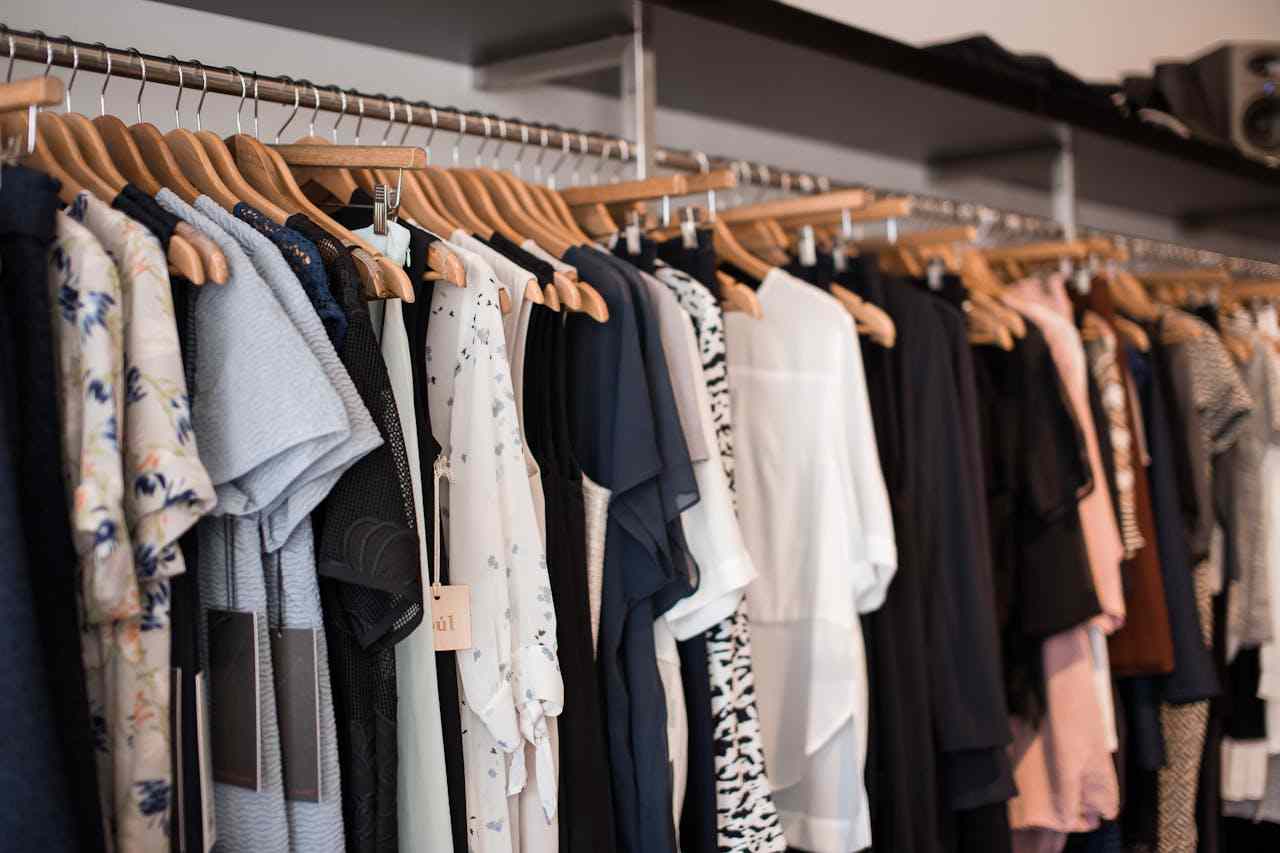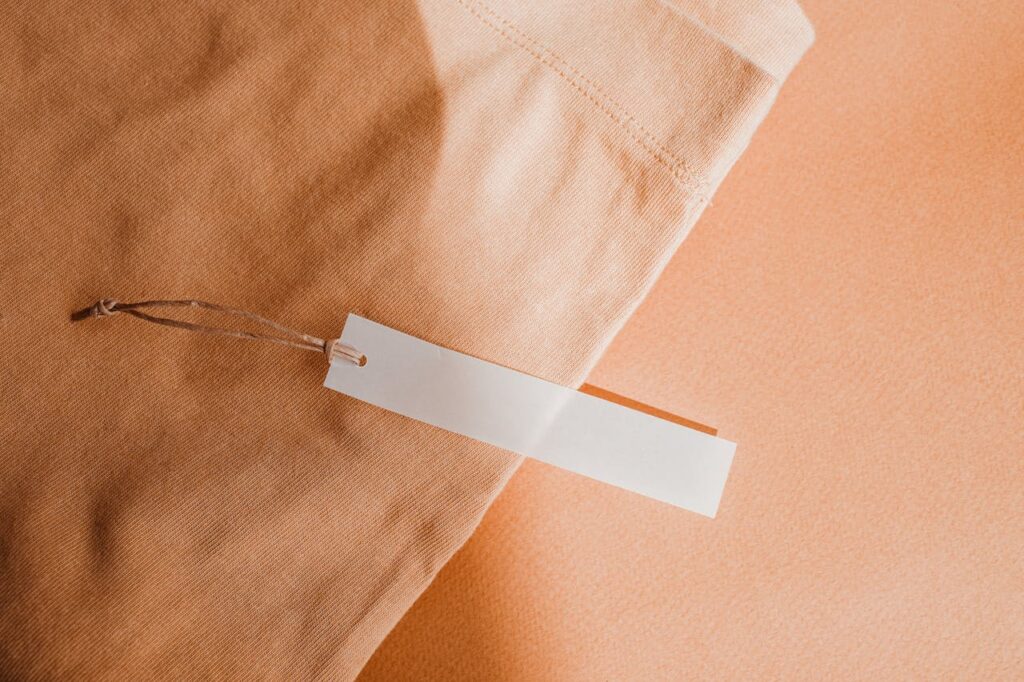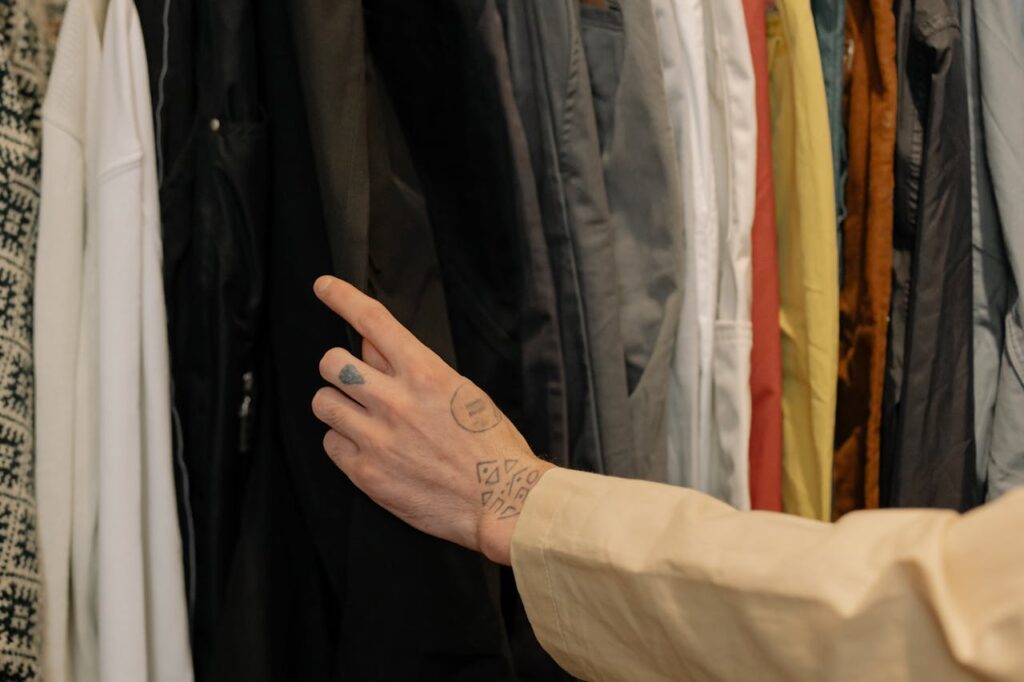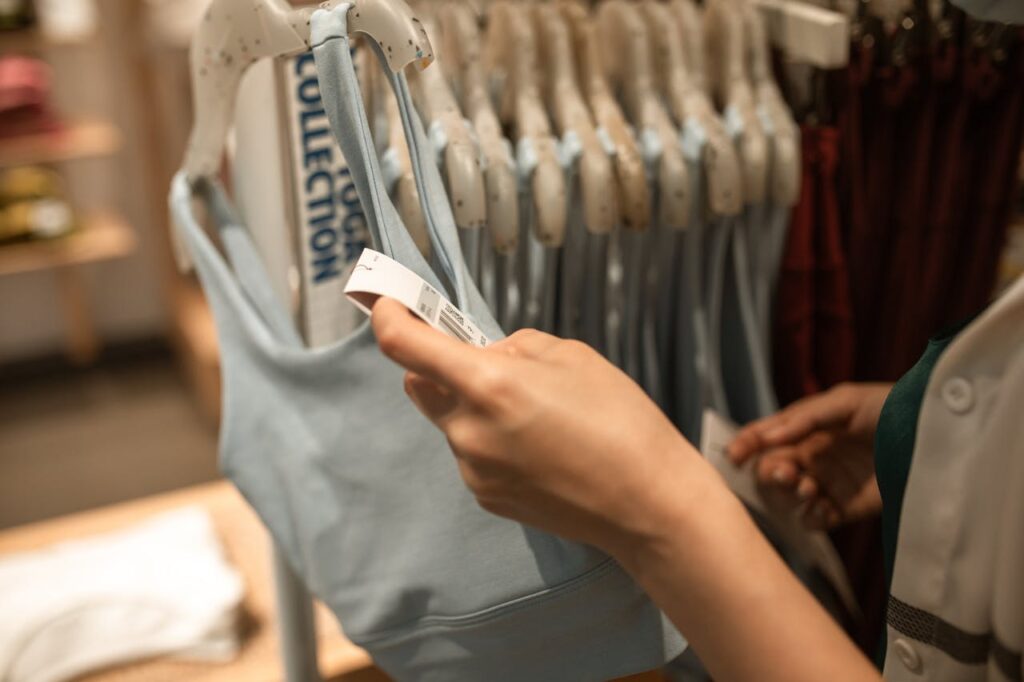Starting a private label clothing line is simply selling clothes under your own brand name, even though those clothes were manufactured by a third-party and marketed as yours. The private label clothing model is a beloved option for foundry fashion entrepreneurs to take control of development, quality, pricing, and profits without dealing with in-house production. Private label brands are booming in both eCommerce and retail as more and more consumers want niche and personalized fashion. Private label brands have no end in sight as the rise of consumer control is here, and it’s easy to enter. The key to your private label success is collaborating with a reliable clothing manufacturing partner to help you get your ideas to market efficiently. We’ll unpack how to start a private clothing label clothing line from scratch into action steps.
Step-by-Step Guide to Starting a Private Label Clothing Line
Starting your own private label clothing brand from the ground up may seem like an overwhelming task but when you break the entire process down into small steps, it is very doable. Whether you are launching a private label clothing line or a retail business, using a systematic approach can help you build a firm foundation and eliminate costly mistakes. So let’s go through each step to help you create a private label clothing line confidently.
Step 1: Conduct Market Research
The first step to building a private label clothing brand is to familiarize yourself with the market. To do this, start with your target audience in mind. Who is your target audience? Consider their age, gender, lifestyle, preferences, and shopping habits. Whether you want fitness clothing private label, organic clothing private label, or swimwear, it’s your preference and research. Once you’ve clarified your niche, you need to explore the world of fashion. This means not only understanding current fashion trends but you also need to research your potential customers to ensure that you can keep up someday. Look into your desired competitors to see what they are doing right and there they are going wrong. This information helps you identify market gaps that your label could fit into, giving you a better chance of succeeding in a competitive industry.
Step 2: Define Your Brand Identity
An established brand identity differs your private label clothing line from others. Start by developing a strong brand story that connects with your target market and explains your vision. Define your brand values, tone of voice, and branding assets such as your logo, colour palette and typography. Your branding should remain cohesive at all levels including product design and packaging to help create a meaningful customer experience.
Step 3: Create a Business Plan
A complete business plan serves as your road-map. Identify both your short- and long-term business goals, budget and pricing structure. You also should outline a projection for income and expenditure so you know if you can sustain your business financially. Moreover, briefly detail your marketing and sales plan, from online ads to working with influences. Lastly, outline your distribution / sales channels whether that is a DTC online store, third-party marketplaces, or physical retail locations.
Step 4: Design Your Collection
Now that you have your foundation, it’s time to start creating your collection. First, it’s important to decide the type of category you want to pursue. For example, casual wear, active-wear, lounge, kids etc. Obviously, you’ll want to finalize your styles, fabrics, sizes, seasonal themes etc. based on your niche, and audience. It’s completely up to you if you decide to hire trained private label clothing designers for your clothing collection or use customizable pre-filled templates. It’s important as well that your clothing designs are a true representation of your brand, but also fitting for your target market’s likes and preferences.
Step 5: Find a Reliable Private Label Clothing Manufacturer
Your Clothing manufacturer will be your most important business partner. Find a clothing manufacturer that provides quality production, flexible minimum order quantities (MOQs), reasonable lead times, and customization options. A skilled manufacturer will be able to help you manage the sometimes daunting technical processes as well as offer you helpful hints along the way. Before entering into a partnership, remember to ask questions around timelines, quality assurance, communication processes this is a great way to avoid hard feelings in the future.
Step 6: Sample Development and Quality Control
Never skip the sampling stage – it is an important phase of the product refining process! Request samples to check out the quality of the fabrics, stitching, fit, and overall construction. Testing the product helps you to verify that it adheres to your brand standard and meets your customers wants and expectations. Also, use the sampling process to make changes and iterate based on feedback. This stage can identify and alleviate risk and help the production flow more smoothly.
Step 7: Pricing and Inventory Planning
Pricing can be very critical for any business. You must consider and calculate the costs of your production, retail markup, shipping, and profit margin. You should also take into account all of your overhead to establish a price that is both competitive and profitable. Please check the above points in tandem with your production plan, in terms of inventory, demand forecasting, and storage capacity. Understanding your minimum order quantities and what level you will supply can relieve the stress of over production and stocking out.
Step 8: Branding, Packaging, and Labelling
Your product packaging and labelling should demonstrate professionalism and your brand’s aesthetic style. You should invest in custom labels (woven, printed, or heat seal) to keep it visible on the shelves. Packaging should not be overlooked as it will also impact customers’ perceived value. Consider using packaging that is environmentally responsible if you feel there is a market for that type of product to cater to consumers that are environmentally conscious and have nurtured a more modern or sustainable mindset.
Step 9: Launch and Market Your Clothing Line
Now that you have everything prepared, you are ready to go to the market. Develop an amazing online presence with a solid eCommerce store, social media channels, and email marketing. Work to find influences, stylists, or niche-based fashion bloggers to help establish credibility. You could even consider starting with a soft launch, for example, pre-orders or in small batches, to generate hype and gauge initial customers’ responses.
Step 10: Scale Your Business
Concentrate on development following a successful launch. Regularly review performance indicators such sales trends, return rates, and consumer reviews to spot possible improvements. Apply the understanding gained here to improve your goods and consumer experience. To help rising demand and corporate change, deliberately expand your inventory and improve your connections with reliable manufacturing partners.
Cost To Start A Private Label Business
Cost will impact whether you will launch a private label clothing line just for fun or as a serious business. That’s why your business model and scale will define the entire cost to start your own clothing line.
If you are starting your own clothing line, you’re likely to spend between $5,800 and $17,000 in startup costs, whereas if you are starting a physical retail clothing line, it may cost up to $64,500 to $131,300. Many factors affect cost in the manufacturing process, such as garment design and volume. A basic t-shirt order usually costs between $10 and $30 per unit, however, there are significant savings in volume orders. Other costs to consider in the launch will be your branding and packaging costs.
These costs will probably run you $500 to $3,000 depending on your suppliers. Setting up an e-commerce website can cost between $500 to $5,000 depending on site functionality and features, and your ongoing monthly expenses such as marketing, staffing, and utilities can be anywhere from $500 to well over $15,000.
Some of these costs are usually upfront and only require you to pay once, moreover, some are operational and require constant management. You could consider cost-saving solutions in the manufacturing process, i.e., print on demand with an e-commerce website would eliminate prior inventory storage and lead time.
In conclusion, the better approach is launching with a concentrated product line and then scale from there to minimize immediate funding in the beginning and most importantly effectively test the marketing.
Common Challenges and How to Overcome Them
Though there are difficulties when you start a private label clothing line, a good plan will help you to overcome every one of them. Since newer companies usually have constrained budgets, you might want to start with a small product line and use print-on-demand or small-run manufacturing to reduce your starting costs.
Sourcing materials can be quite challenging if you lack contacts, therefore it’s best to work with seasoned producers or occasionally go to textile trade exhibitions to simplify things for you and ensure you high-quality goods. Delays in sample ordering or shipping can often complicate your production schedule, so be sure you are budgeting for a buffer and regularly connecting with your manufacturer.
Finally, throughout your brand experience, customers will be inquiring about sizing, delivery, and quality expectations Be as open as you can, in keeping with your branding and excellent service. Early resolution of these difficulties should help you establish yourself for long-term success.
Why Choose Tack Apparel as Your Private Label Clothing Manufacturer
By choosing Tack Apparel as your Private label clothing manufacturer, you are working with a company that understands the importance of quality, flexibility, and the growth of your brand. Tack apparel is a complete custom manufacturing facility where we service every aspect of your vision, including sourcing fabric, custom design, final manufacturing, and packaging.
The Press line is great for companies in the process of launching their brand, as well as companies looking to grow their brand. Tack Apparel has low minimum order quantities (MOQs) so you can start small and grow as you become more confident in your designs and production. Every product that Tack Apparel manufactures goes through stringent quality control measures, ensuring that with every order, you receive that same beautiful product every time.
We have established global shipping solutions, to ensure that your customers anywhere on the globe can receive your apparel in a timely manner. By getting started with manufacturing your clothing line today with Tack Apparel and contact us for your free consultation or request for a sample.
Build Your Private Label Clothing Line Now
Getting private label clothing provides a potential opportunity to build a unique fashion brand while having complete control over design, quality, and pricing. With the proper preparation and assistance, you can enter this expanding market with confidence and success. A trustworthy manufacturing partner is vital in bringing your vision to life and ensuring quality, timely delivery, and potential long-term growth. There are an infinite number of steps required from ideation to launch, but every step is made easier with expert assistance. Ready to bring your vision to life? Partner with Tack Apparel to launch your private label clothing line seamlessly and confidently start today with a free consultation or sample!








